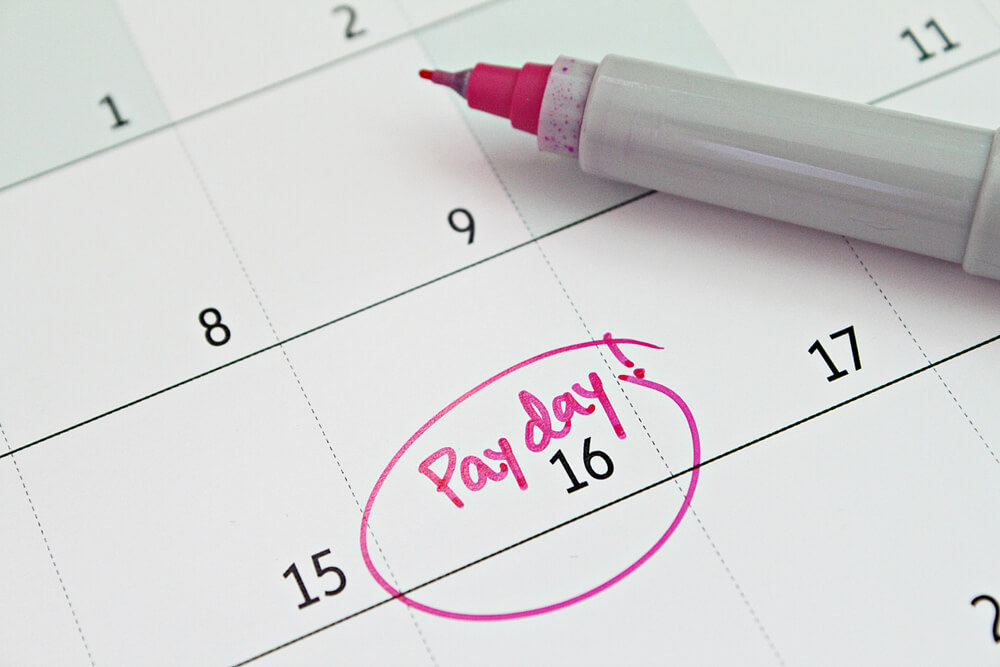
Five Steps to Budget Your Money on a Solo Income
There’s no doubt that managing a family budget can be difficult. There are all these little creatures you have to feed and take to school, your husband or wife has their own individual expenses, and then there’s you!
There are a lot of moving parts in that equation; however, sometimes being on your own can be scarier. One budget might be easier to handle, but one income is even harder to support yourself on and you may even start looking for "payday loan near me" to help you stay on budget. So let’s go over how to budget on a solo income for all those out there playing the singles game.
Step Number One: Find Out Where Your Money’s Going
Where is your budget hemorrhaging money, and can you apply the metaphorical tourniquet there? Before we move onto anything else, it would be a good idea to address the most obvious issues through a spending diary. What are you spending money on that you can either cut down on or avoid altogether on your budget?
We would suggest creating a spending diary if you do not already have an app like Mint or Clarity. Both of these are apps that track and categorize your spending. There’s also this nifty process called “kakebo”, also known as the Japanese art of mindful spending.
If you prefer the old paper method of jotting down your money movement, then the kakebo book published by Harper Design is very, very helpful when it comes to clearly break down your spending and savings. It also helps promote smart spending so you can save more in the long run!
Manage Your Subscriptions
One of the nice things about apps like Clarity is that it can help you evaluate the subscriptions you have. It’s funny how a few small subscriptions can really drain your income without you even realizing it, so maybe it’s time to decide what it is you really need in your monthly budget, and if those subscriptions are really worth the money you’re spending on them.
Step Two: Plan for the Worst
You have to ensure that in the event of an emergency, whether it be medical or otherwise, you will not go into immediate debt due to an inefficient budget. Saving money for the event is crucial, as is preparing for it in other ways. Make sure you put aside money from each paycheck so that way, over time, you will have a nice nest-egg to draw from when the time comes.
Similarly, you should definitely have health insurance, car insurance, etc. It might be a pain to do the research it takes to find a good plan, and you might not want to have that monthly expense, but it is far better to have access to that kind of assistance in a situation that requires a large sum of money. Having your options available like your personal savings or a payday loan could help you be prepared for any financial emergency that comes your way.
Step Three: Make Money Off Your Junk
So while you might not be able to make your fortune off of this, you can certainly make a little side money for your budget and clean up your home of unnecessary clutter. Here are just a few ideas on the possible ways you can best profit off the things you no longer need.
1. Selling Your Clothes
What do you really wear these days? Some people have the unique sense to wear everything they have, but not all of us cycle through our whole wardrobe. It might not be a bad idea to clean out your closet.
If you haven’t worn that dress in the past year, then how useful is it really? Here in South Carolina, you can bring your clothes to stores like Plato’s Closet—you might even make more than just a few bucks if it’s designer threads. You can also use online resources like Instagram or Facebook. It’s really a win-win when you make money off things you don’t need.
2. Pawning and Selling Online
Your spring cleaning doesn’t have to stop at clothes. If you have extra cellphones lying around or other electronics you no longer find yourself using, you can sell them at a pawnshop, online, or even a little thing called an ecoATM. You can also take any books collecting dust, furniture, or tools to second-hand stores. You might not make back what you originally spent, but it’s better than just throwing whatever it is out.
3. Sell or Re-Gifting Gifts
Holiday debt packs quite the punch. If you find that the holidays have passed and you’re in a bit of the budget blues, you can take the gifts you’ve received and re-gift them to others for birthdays or future holidays and save your future-self money. You can also sell those gifts to make some quick cash.
Step Four: Fatten Up Your Monthly Income
You could, of course, go the traditional route and get an extra part-time job if you have the time, but there are other ways to generate extra money to help you with your budget.
For example: consider renting out your home or car through resources like Airbnb. Airbnb is a great website that manages the advertising, organizing, and safety aspects of using your home as a mini hotel. You can even limit your availability to a single room in your home if you do not have anywhere else to stay, and so long as you don’t mind the stranger in your home, it makes for a wonderful way to make money on the side.
Similarly, you can use your car to make deliveries for food or as a taxi without having to do much more than open an account on an app like Instacart or Lyft. So long as your car and driving history is horrendous, you can easily sign yourself up and work when you like. In major cities like Charleston and Myrtle Beach, where large events happen, you can stack up your cash count pretty quickly in a short amount of time.
Step Five: Refinance Your Loans
Debt can be a huge leech on your budget and make life a whole lot harder. It might not initially occur to you, but there are alternatives to dealing with your debt rather than just paying them off through the initial terms and draining even more money due to interest.
Depending on the nature of your situation, you might be able to utilize an alternative South Carolina payday loan to better manage your debt. Let’s say, for example, that you have quite the sum in student loan debt—student loans are notorious for having insane interest rates, which can make the process of paying them off seem impossible. Do a little research into credible alternate installment loan options with a lower interest rate.
If you transfer your debt into that new loan and pay off the one with the higher interest rate, then you’ll have an easier time handling the money you owe, and build your credit in the process.

Credit Card Debt
The same can be said with credit card debt. Credit cards work on a system of revolving debt, meaning that they have a range of credit to be used and must be paid on a flexible monthly requirement. If your credit score has taken a hit from outstanding debt on your credit card, then an installment loan can take some of that weight off and assist you in paying it off with smaller interest rates. This would best be used in avoiding maxing out your credit card, which you’d want to avoid because it increases your credit utilization rate and could significantly lower your credit score.
Since you’re taking on more debt, you will go through a period of time when your score dips; however, if you pay off the loan within the agreed-upon time responsibly, then your credit will be far higher than prior to your consolidation and you could potentially save a lot not only on your monthly budget but on your actual savings as well.
It’s vital to keep in mind that this method only works if you use the loan to retire existing debt as opposed to taking on more. So searching for a payday loan near me can help build your credit through a payday loan has the potential of saving you money quickly on a monthly basis, and your credit score in the long run.
Note: The content provided in this article is only for informational purposes, and you should contact your financial advisor about your specific financial situation.